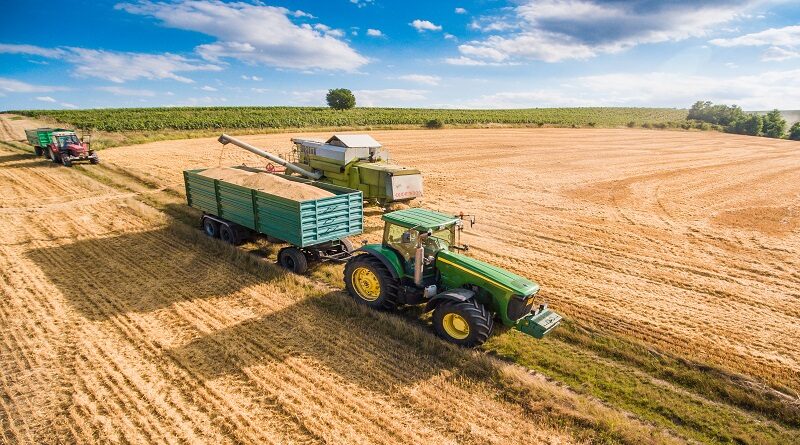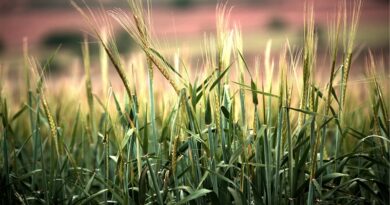Postgraduate courses in Farm Management
If you’re hoping to delve into the world of becoming a farm manager, look no further.
Below is all the information you need when beginning your research into the perfect postgraduate course for you.
Take a look.
What is farm management?
Farm management involves overseeing and ensuring all proceedings on a farm run smoothly and making good business decisions. Farm managers must also make sure the farm meets all standards and regulations set by the Department of Environment, Food and Rural Affairs (DEFRA) to ensure high quality products are produced in an environmentally friendly way.
What does a farm manager do?
The regular jobs of a farm manager may differ from day to day depending on whether you work in animal production, dairy or crop production. Farm managers are on call seven days a week from sunrise to beyond sunset. There is quite a lot of work involved.
Examples of what you might do:
- Driving tractors operating machinery
- Feeding live stock
- Business plan – finances and production
- Buy farm supplies
- Milk cows (if dairy farm)
- Market production
- Ensure farm productivity reaches government standards
- Make sure products meet deadlines
- Monitor animal health and welfare
- Apply health and safety standards to the farm
- Maintain and organize repair for equipment
- Apply for funding where applicable
- Keep financial and farm records up to date
- Make sure farm operations run smoothly
Courses
There are different courses that will equip you with the skills and knowledge you need in order to run a farm successfully. Certain courses can help you in specific areas of farm management and many can be studied either part time or full time. Examples of course that can help you in your pursuit of becoming a farm manager are:
Rural Land and Business Management
A course in rural land and business management will help students gain knowledge of challenges faced in rural business management, including the changes faced with Brexit. There is also a focus on the analytical and and strategic approach to different complex situations faced in the industry.
Farm Consultancy and Knowledge Exchange
A postgraduate course in this area will help students to develop advisory skills, update their technical knowledge as well as focus on the communication skills, science and business skill and knowledge needed in the agriculture industry.
Environmental Management for Agriculture
These courses focus on the rising demand for food, biofuel, and other products in an industry that must adapt to the ever changing demands for a more sustainable industry. Students will combine agriculture activities and their potential impact both positively and negatively in the environment. Environmental management systems, environmental auditing, life cycle assessment and environmental impact assessment are also focused on.
Food Safety and Quality Management
A postgraduate course in food safety and quality management will give students the opportunity to study safety and quality management systems and also gain the knowledge to control measures that need to be applied to ensure that food and feed are safe for consumption among much more course material.
Entry Requirements
Entry requirements can differ from course to course, however, the majority of courses will require a second class honours degree, or above, in a related field such as agriculture or related sciences. Some courses may require a 2.1 degree while others may require a 2.2 degree.
Entry requirements for each course can be found online on university websites or on course overviews.
My Career
Farm Management is a largely time consuming job. Different times of the year have different demands but in highly productive seasons such as the summer time, daily shifts can be anything up to 16-17 hours a day. It can also be a stressful environment when trying to keep everything running smoothly. There are many variables which you cannot control that might have an effect on farm production such as weather and market prices. It is hard work, however, many enjoy the work type and adapt to the workload.
As experience grows, farm managers may work their way into larger farm and food production corporations and into management roles. Farm managers may also hire farm assistants or helpers to lighten their work load at certain times. You will also have to work in all kinds of weather conditions from hot to cold, wet to dry, snow or hail.
Salary Expectation
A lot of the time in farming, workers may start out as farm assistants and work their way up to management. A farm assistant can earn up to £22,000. Starting out as a farm manager, you can earn up to £35,000. With experience of 15+ years, farm managers in the UK can earn anything between £50,000 to £70,000. Salary may also depend on the size of the farm.
Skills and Requirements
There are many skills needed for this role. Some of the main skills are:
- Ability to carry out physical work
- An understanding of crop, dairy and animal production
- A business mind
- Hard working
- Ability to work under pressure
- Marketing skills
- Ability to lead and manage
- Organised
- Time management skills
- Commitment
- Understanding governments regulations and standards




